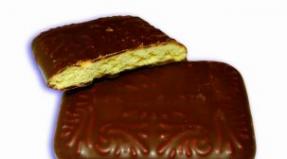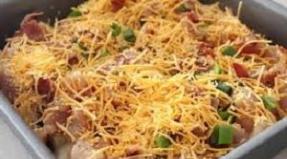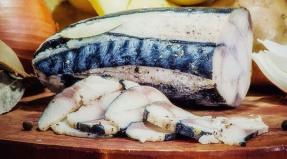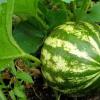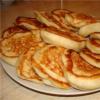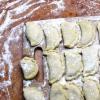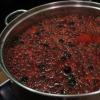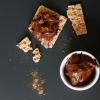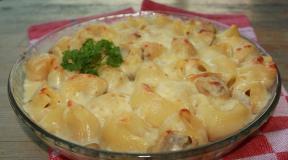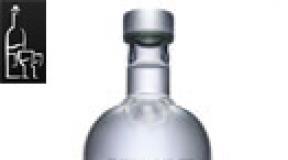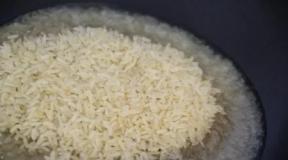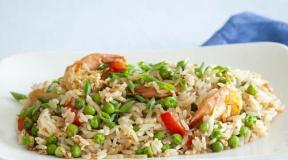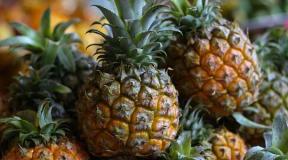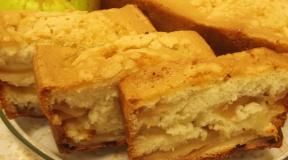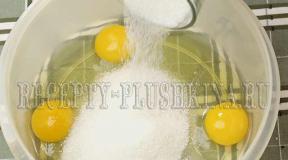Kosher food. Feature of Kosher Products List
Each of us has heard about kosher foods, but hardly delved into what applies to them and why. The term itself comes from Israel, where Jewish believers live exclusively according to established rules and laws. This aggregate is called Halakha and has the right to determine their religious, social and even family life. Things that are approved by Halacha are called "kashrut".
Believing Jews even eat according to the laws, which establish a list of permitted foods. Therefore, real kosher food is prepared without any violations and according to certain technologies.
The production process is under the strict control of 170 Jewish organizations, including the rabbinates. Each kosher product carries the seals of these organizations.
What does kosher food mean among Jews?
All kosher foods can be roughly divided into:
- meat (bassar);
- dairy (freebies);
- neutral (parve).
Meat products
The Jews call meat products "basar" and naturally, this meat is obtained only from kosher animals. They are herbivores with cloven hooves that live on land. Therefore, cows, sheep, goats, moose, gazelles are suitable for the category of "kosher". The Torah states that pigs, rabbits, camels and hyraxes are not considered kosher.
Meat that might be on the kosher list should be free of blood. Kashrut prohibits the use of blood, as he believes that with someone else's blood, cruelty will awaken in a person. Even eggs, which may contain blood clots, are prohibited.
Kashrut does not say anything about poultry meat, but at the same time, those birds are indicated in the Torah, the meat of which cannot be eaten. These birds are: owls, eagles, falcons, hawks and pelicans. The list of kosher foods includes only poultry meat, namely pigeons, ducks, geese, chickens and turkeys.
There are a number of rules for kosher eggs as well. According to kashurt, you can only eat eggs with unequal ends, i.e. one should be sharp and the other rounded. If the egg has both blunt or sharp ends, then it is no longer suitable for eating. But it is almost impossible to get such eggs from poultry, because they are carried by wild birds of prey that feed exclusively on carrion. Therefore, it becomes clear why the meat of these birds is prohibited.
Kosher fish meat also has a number of characteristics. It should come from fish that have scales and fins. Seafood is not kosher, so Jews do not eat crabs, crayfish, shrimp, oysters and octopuses. Insects, snakes and all types of worms are also considered non-kosher.
Dairy products
Dairy products are called "freebies" and can only be eaten if they come from kosher animals. Milk and other products obtained from it from non-kosher animals are prohibited and unclean, therefore, believing Jews are prohibited from eating it.
Neutral products
Neutral kosher foods include fruits and vegetables. Jews call them "parve". They become kosher only if they are not wormy and under no circumstances have come into contact with non-kosher foods. For example, if vegetables are served with pork, then Jews are no longer allowed to eat them.

You can buy kosher products in Israeli markets. There are not many places with kosher food in our country. But, nevertheless, the population is already more concerned about their healthy diet and, even not being Jewish, prefers to eat kosher food, which by definition is pure.
Thus, all kosher food products are a guarantee of high quality. Even baby food, alcohol and instant dry foods can now be found on the list of kosher foods.
But when going to specialty stores with kosher food, you should pay attention that the inscription "kosher" must be confirmed by a specific seal of one of the rabbinates who controls the production. Otherwise, do not let scammers profit from the sale of ordinary food under the word "kosher", because without being Jewish it is very difficult to distinguish real kosher food from those sold under this name.
This word comes from the Hebrew "kashrut". Kashrut is a set of rules and laws about different areas of life, reminding Jews of what is permissible and what is not. Kashrut is based on the laws of the Torah and the rules that were established by Jewish religious leaders (all together these rules and laws of the Torah form the Talmud). "Kosher" refers to everything that is permitted, including food that a Jew can consume. This concept also includes other aspects - what is allowed in family life, social life.
What is Kosher Food
So, kosher is the type of food that is allowed to be consumed by an orthodox Jew. The Jews believe that certain types of food negatively affect a person's spirituality, while others increase it. This is especially true for meat. The character of a person can be influenced by what kind of meat he eats. For example, carnivore meat is believed to make humans aggressive and violent. Also, the point of kosher food is to limit cruelty to animals.
The rules for dishes (separate preparation of meat, dairy and vegetable dishes) are also dictated by the rules of hygiene.
Kosher foods
- The meat of herbivorous ruminants, which are artiodactyls, is allowed for consumption. These are cows, goats, sheep, moose and so on. In this case, the animal must be killed in a kosher way. A special sharp knife is used, which allows you to kill the animal in one motion, so that it does not have time to be frightened. The slaughter of livestock must be carried out by a specialist. Before cooking, the meat is soaked in brine, rinsed and blood is removed from it. Only after that does it become completely fit for food.
- Poultry (chicken, ducks, geese, turkey) and their eggs are considered kosher.
- Fish with scales and fins. With regard to fish, there are no special rules regarding the method of catching it.
- Meat and dairy products are consumed separately, a few hours must pass between meals.
- Fruits and vegetables, as well as all plant foods, including honey, sugar, salt, cereals and cereals, bread, mushrooms, coffee and tea are kosher and can be eaten with other types of food. They are called parve (neutral). Fish is also considered "parve", but traditionally it is not consumed with meat.
- Alcoholic drinks, wines are allowed, but there is a large set of rules regarding their preparation and growing of raw materials. Only if all the rules are observed is the drink considered to be ash-rich.
Non-kosher ("tref") types of food
- Kashrut prohibits eating the meat of animals that are not ruminants or artiodactyls (pigs, hares, etc.). These animals are considered "dirty".
- The blood of animals and birds is prohibited.
- Fish should not be mixed in the same dish with meat and dairy foods.
- Meat of birds of prey, scavengers and wild birds in general. There is no exact list of birds that cannot be eaten, so all wild birds are considered “non-kosher”. Their eggs should also not be eaten.
- - Tradition also does not allow eating shellfish and crustaceans - octopuses, squid, oysters, crabs, shrimps, lobsters), since they do not have scales and fins.
- The caviar of non-kosher fish (which does not have scales and fins), for example, sturgeon caviar, is also not kosher.
- It is forbidden to eat insects, reptiles and amphibians. The only insect suitable for eating is a certain type of locust. Because of this, Jews must very carefully examine fruits, vegetables and cereals before eating to make sure they are free of insects and their larvae.
- The dishes in which the meat has been cooked cannot be used. for the preparation of dairy products and parve.
- If the utensil in which the non-kosher food has been cooked comes into contact with the kosher food, then the food also becomes non-kosher.
Where to find kosher food
Some manufacturers, especially in Israel and the United States, put a "kosher" mark on their products, confirming, for example, that the animal was killed in a legal way. Such products can be purchased mainly in specialized stores, but sometimes items marked "Kosher" are sold in regular supermarkets. Kosher products are chosen not only by the faithful, but also by Muslims (who have a similar concept of "halal"), and supporters of a healthy lifestyle, and fighters against cruelty to animals. Thus, the production and sale of kosher food occupies a special niche in the business.
Many have heard the term "kosher". What does this term mean? When is it used? What is the origin of this concept? The article will provide answers to these questions.
"Kosher" in Hebrew means "fit." Therefore, the concept of "kosher food" today should be understood as the process of maintaining life and health with the help of food, which does not harm a person.
Judaism - the world's oldest monotheistic religion - implies observance of religious precepts, norms and rules - kosher, which apply not only to clothing, cosmetics, but also to food. According to this principle, Jews must prepare food in accordance with the laws of kosher and strictly at a certain time.
The main purpose of the law is that kosher is a rational and healthy diet that creates harmony in the development of the human body.
Kosher food
In the prescriptions of Moses, which are reflected in the written five-book law "Torah", it is indicated that non-kosher food has a bad effect on the health of an individual, his religious level decreases and his sensitivity deteriorates, therefore he is not capable of spiritual perception.
This law states that a person who has eaten the meat of a predator is capable of displaying aggression and is able to go astray. Therefore, only fillets of herbivorous animals will be considered pure food. The meat of carnivores is classified as a tref product, that is, prohibited.
Features of kosher food and products
Kosher food involves the use of strictly pure food by a person. According to Jewish prescriptions, all types of plants are edible products. However, not all fish, poultry or animals will be kosher food.
The blood of birds, animals or fish slaughtered in a certain order must be absolutely excluded from the diet, except for fish. A prerequisite for killing animals is the use of a sharp knife cutter: so that the animal does not suffer, the slaughter process must be carried out quickly.
Before starting the process of cooking or frying meat, it goes through the stages of soaking in water, then it is kept in a special brine, and eventually it is rinsed well.
The process of cutting and verification of compliance with the conditions and criteria of kosher is carried out by a special qualified specialist - shohet, who has a certain permit for slaughtering the animal. In addition, the Jewish pig is considered an unclean animal, so pork will never be kosher.
Thus, the teaching of the Torah teaches a person discipline and limitations, fosters an antipathy to the shedding of blood and cruelty.

List of kosher foods and dishes
Kosher food is divided into three categories: meat ("basar"), dairy ("freebies") and neutral ("parve"). The basic principle of kosher nutrition is the complete separation of dairy foods from meat foods. Especially in order to maintain the kosher position, special cutlery and kitchen utensils and crockery are used. Kashrut requires some utensils to be dipped in the mikvah before using them for the first time.
The process of preparing such products according to these principles involves the preparation of food in specially designated places.
Products in a neutral category can be eaten at the same time as one of these categories. This variety includes those fruits and vegetables that have not come into contact with non-kosher foods or are not worms.
The list of clean foods is pretty long. These are pasta and legumes, fresh, canned or frozen fruits and vegetables, lean, peanut and olive oils, certain types of alcoholic and non-alcoholic drinks, certain brands of tea and chocolate.
This list can be continued, but in any case, you need to pay attention to the packaging of the goods: it will definitely have a kosher sign. In the event that the sign is missing, consultation with a rabbi is required.
How to prepare kosher meals? Suitable are those in the preparation of which certain foods have been used. Therefore, a dish that has been tested by a rabbi or was prepared in Israeli cuisine or in a Jewish restaurant will not necessarily be considered kosher. Not at all. A kosher dish can be made very easily by yourself, considering all the signs of kosher for the food that you have in your refrigerator in the kitchen. However, the main and main feature is, of course, the purity in their preparation.
We will talk about the features of products that are suitable for use in food below.

Kosher meat
Jewish cuisine involves the use of grass-fed artiodactyl ruminants. They, thanks to the muscular and glandular compartments of the stomach, are thoroughly digesting food. These are cows, and sheep, and goats, and moose, as well as gazelles. In addition, this includes animals that do not have a cut of hooves: rabbits, camels and hyraxes. The Torah contains a complete list of kosher animals.
According to the Torah kashrut, kosher meat is chicken, geese, ducks and turkeys. However, there are still exceptions: the meat of carnivorous warm-blooded oviparous animals.

Kosher dairy products
Is kosher a dairy product? What does it mean? A suitable product is milk that is obtained from clean animals. Only in this case is the product acceptable for consumption. Otherwise, it cannot be used for food.
Kosher food has a number of specific customs and traditions. The principle of kosher says that after consuming milk or other dairy products, you need to rinse your mouth and taste solid, neutral food that will not stick to the palate.
It is very common to take breaks between meals of different categories of kosher food. To eat meat, you need a break of 30-60 minutes. After eating hard cheese and between the use of "basar" and "freebies", you must wait 6 hours. Milk can be eaten with fish, but from different dishes.

Fish that is considered kosher
She does not need to be killed in a special way. However, there are also exceptions here: kosher fish must be with outer horns and limbs. These are cod, flounder, tuna, pike, trout, salmon, herring, halibut, haddock. You can not eat crustaceans, arthropods and soft-bodied. Insects, snakes, and worms are also not pure foods.
Jews do not eat fish with meat products, but they can be put together on the table.
Kosher "parve"
As noted earlier, even unprocessed fruits and vegetables belong to the parve category. The only condition for compliance with kosher in this case is the absence of insects in these products. Therefore, fruits, vegetables, which are susceptible to spoilage of bugs and other insects, are thoroughly checked and processed.
Poultry eggs are also in the neutral category. However, mainly poultry products with unequal ends are allowed for food, namely chicken, goose, turkey, pheasant and quail are also allowed. The Jews consider the eggs of carnivores or those that feed on carrion unclean. Foods with bloody spots are not kosher. Therefore, they are checked before use.
These types of pure products do not even require a special mark and can be mixed with others in any combination. However, if they were mixed with dairy or meat species, then they no longer belong to the "parve" category.

Where can you find such products
Kosher products are marked with a special sign that guarantees compliance with the principles of such nutrition, their usefulness, environmental friendliness and high quality. Due to some of the difficulties in preparing such food, the price of goods suitable for Jews differs significantly from the prices of food that can be found in the market or in the supermarket.

Where is kosher food most often considered traditional? Mostly suitable products can be found in Israel, but recently even the population of other countries has attached great importance to proper nutrition, so you can find such products almost everywhere. And the presence of the kosher sign of the rabbi, who controlled the production process of the product, will help to make sure of its quality.
The definition of "kosher" comes from the name kashrut, a set of Jewish religious rules most commonly associated with food. Kashrut clearly regulates foodstuffs that a real Jew can eat.
Kosher meat
Only the meat of those animals that are both ruminants and artiodactyls is considered kosher. The absence of one of these features makes the meat unfit for food. That is why the Jews are not or the hare. But the Jews can eat beef and lamb in unlimited quantities. Even the meat of the cloven-hoofed and herbivorous kosher is allowed to be eaten by them.
But the fact that meat belongs to one or another type of animal in itself does not yet serve as a sign of its kosher. There is a whole set of rules for kosher slaughter of animals - shechita. This is a whole science. The animal reznik is a shoikhet, for about a year he learns his bloody craft and even takes an exam. Indeed, in order for the meat of an animal to be recognized as kosher, it must be killed with one movement of a sharply sharpened knife, without causing even the smallest lacerations or punctures. Otherwise, the meat is considered non-kosher and is not allowed to be eaten by the Jews.
The Torah also categorically prohibits the consumption of blood. Therefore, the skinned carcass of the animal is thoroughly examined for the presence of blood on it. And even after this procedure, the meat is still thoroughly soaked in water.
Kosher poultry, fish and other foods
The two main attributes of kosher fish are easily detachable scales and fins. Therefore, all fish, with the exception of catfish, sturgeon, eel and, are kosher. And even black sturgeon caviar is not recognized as such because of its own fault.
Most of the birds are also kosher. The only exceptions are predators. Poultry, however, are absolutely all suitable for food for the Jews.
As for dairy products, they are all kosher by themselves. But kosher prescribes their separate use from meat. After eating them, it must take from one to six hours (in different Jewish communities, the period is different) before you can start eating. The time interval between eating meat after dairy products is much lower and is only half an hour. Failure to comply with these rules makes both meat and dairy products non-kosher.
The same set of rules categorically does not recognize the kosher meat of reptiles and amphibians.
Read also ...
- Recipes for making coffee with ice cream at home
- Strawberry panna cotta - a classic of world culinary What is panna cotta with strawberries
- Cream of curd cheese for cake - the best recipes for impregnating and decorating dessert
- Profiterole recipe and three original custard recipes Protein cream for profiteroles
